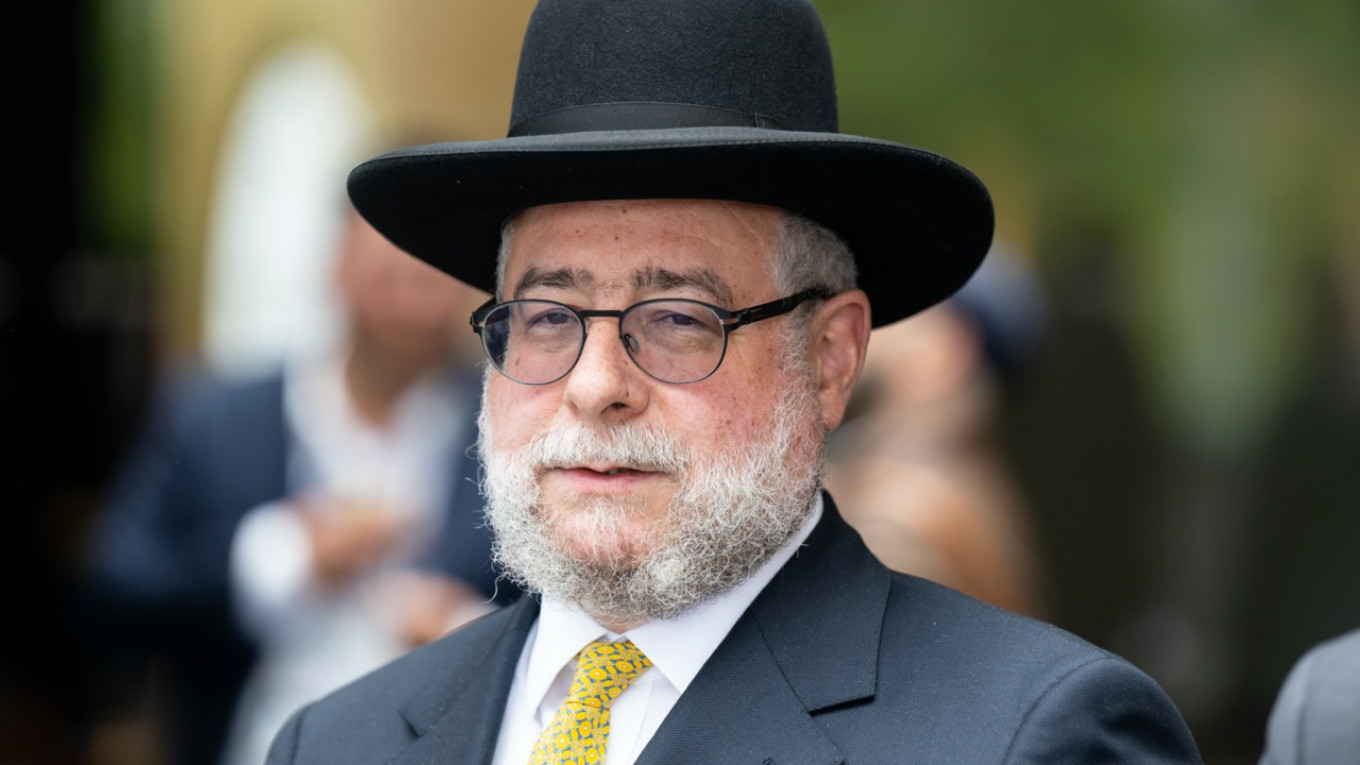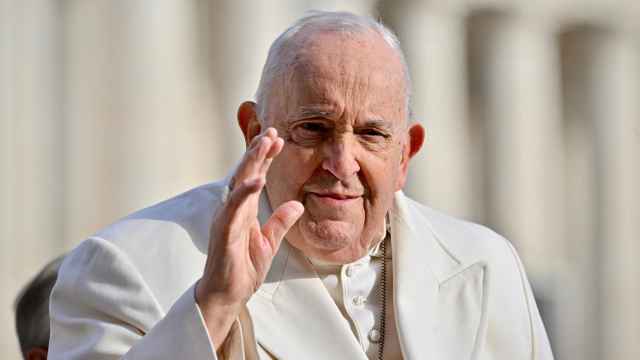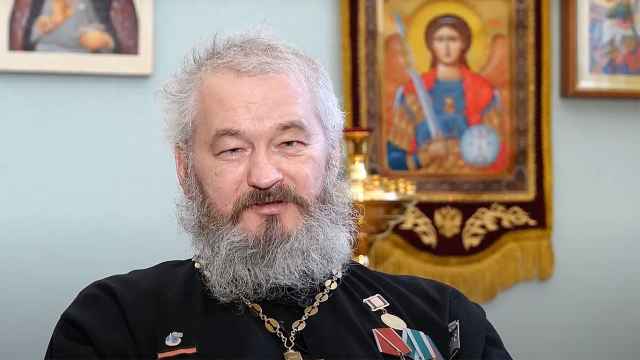Moscow chief rabbi Pinchas Goldschmidt fled Russia two weeks after the invasion of Ukraine due to pressure to support the military campaign, his daughter-in-law said Tuesday.
Journalist Avital Chizhik-Goldschmidt, the wife of Goldschmidt’s son Benyamin, tweeted that Goldschmidt “refused” to support the war.
Goldschmidt and his wife, Dara Goldschmidt, traveled to Hungary in March to fundraise for Ukrainian refugees, and then settled in Israel.
“They are now in exile from the community they loved, built & raised their children in, over 33 years,” Chizhik-Goldschmidt said.
Rabbi Goldschmidt said in early May that he was in Israel because of his father’s hospitalization and did not know when he would return to Russia.
Goldshcmidt, who was born in Switzerland, told Britain’s The Times on Sunday he had been advised against returning to Moscow for the time being.
The rabbi said he could not go further in publicly condemning Russia’s invasion of Ukraine to ensure the “survival” of Russia’s Jewish community of 500,000.
The Ashkenazi and Sephardi chief rabbis of Israel have urged the leaders of Russian Jewish communities to respect Goldschmidt’s authority despite his physical absence from Russia, according to the Jerusalem Post.
“The rabbinic court he headed continues to operate under his guidance and provides a proper response to those in need,” they wrote in a letter, the Jerusalem Post reported.
Goldschmidt was re-elected as chief rabbi in the Russian capital this week for another seven-year term despite his self-imposed exile and efforts to sideline him, the Jewish outlet newsru.co.il reported Wednesday.
A spokesman for Russia’s chief rabbi Berel Lazar, who has also criticized the Ukraine invasion, said he is not aware of any pressure on Jewish leaders to endorse the war.
“It would be surprising to learn that Rabbi Goldschmidt was being pressured,” Boruch Gorin told the Jewish Telegraphic Agency.
A Message from The Moscow Times:
Dear readers,
We are facing unprecedented challenges. Russia's Prosecutor General's Office has designated The Moscow Times as an "undesirable" organization, criminalizing our work and putting our staff at risk of prosecution. This follows our earlier unjust labeling as a "foreign agent."
These actions are direct attempts to silence independent journalism in Russia. The authorities claim our work "discredits the decisions of the Russian leadership." We see things differently: we strive to provide accurate, unbiased reporting on Russia.
We, the journalists of The Moscow Times, refuse to be silenced. But to continue our work, we need your help.
Your support, no matter how small, makes a world of difference. If you can, please support us monthly starting from just $2. It's quick to set up, and every contribution makes a significant impact.
By supporting The Moscow Times, you're defending open, independent journalism in the face of repression. Thank you for standing with us.
Remind me later.






